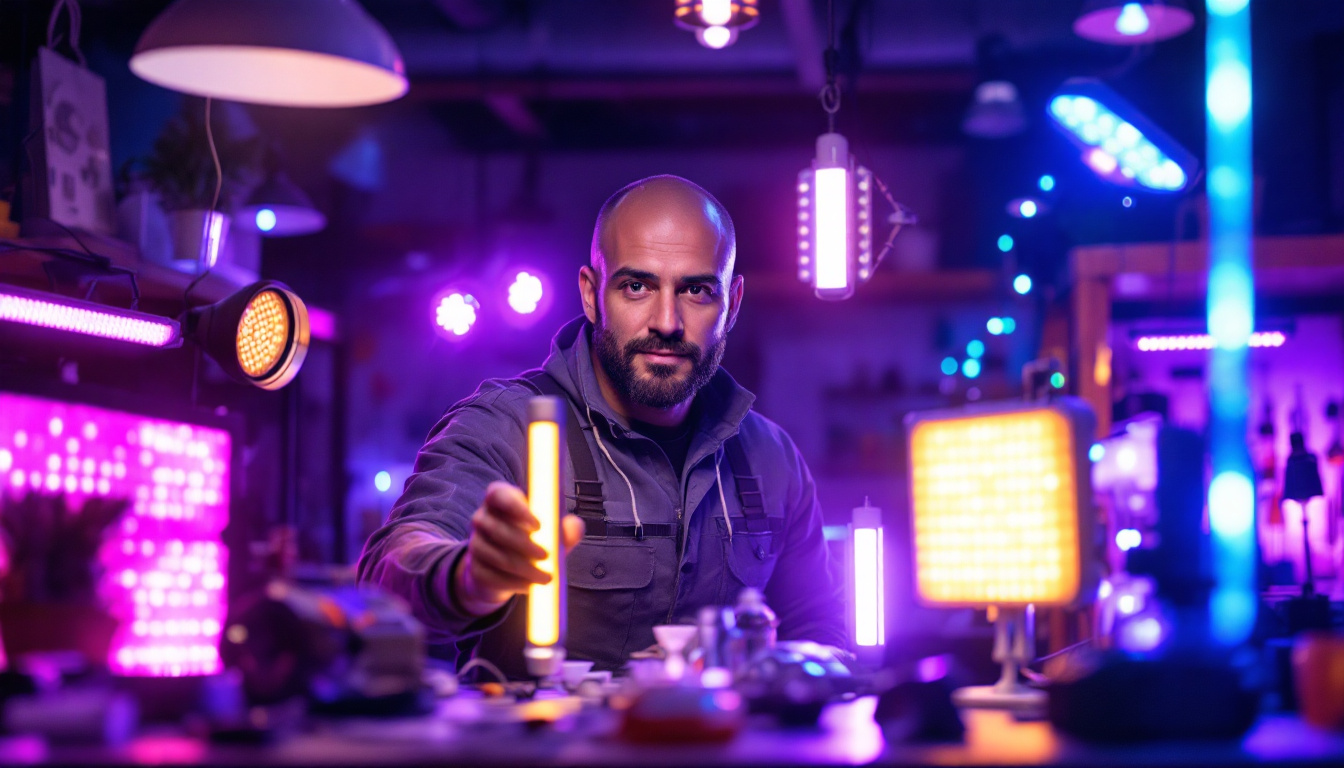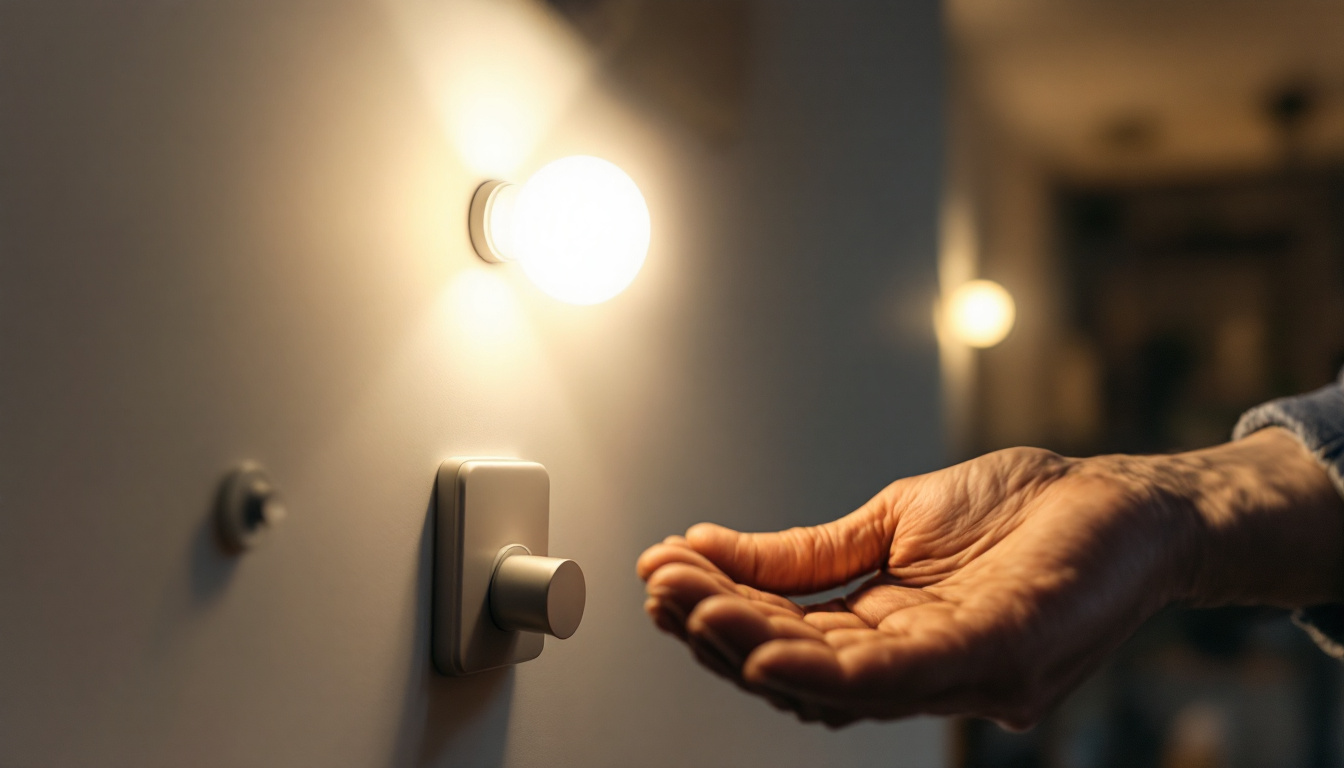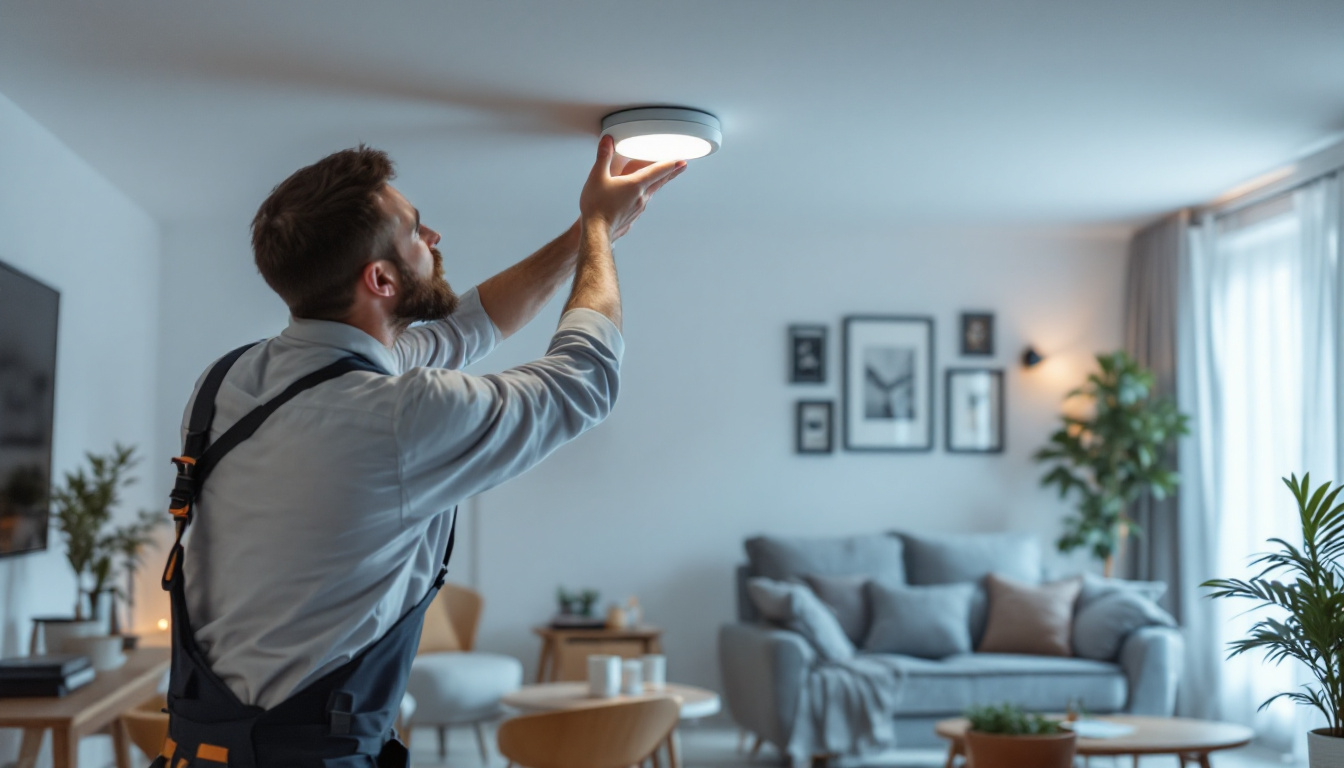
Ultraviolet (UV) lighting has gained significant traction in various industries, particularly in the realm of health and safety. For lighting contractors, understanding the nuances of UV lights is essential for providing clients with informed options. These lights emit wavelengths that are invisible to the naked eye, yet they possess powerful properties that can be harnessed for disinfection, curing, and even enhancing plant growth.
UV lights are categorized into three main types: UVA, UVB, and UVC. Each type has distinct applications and benefits. UVA lights are primarily used for black lights and curing applications, while UVB lights have applications in tanning and certain types of sterilization. UVC lights, on the other hand, are renowned for their germicidal properties, making them invaluable in healthcare settings and environments requiring strict hygiene standards.
The effectiveness of UV light in killing bacteria and viruses is rooted in its ability to damage the DNA and RNA of microorganisms. When exposed to UVC light, these pathogens cannot replicate, leading to their eventual death. This mechanism has made UVC technology a game-changer in environments like hospitals, laboratories, and even residential spaces seeking to enhance cleanliness.
Contractors should be well-versed in the science behind UV lighting to explain its benefits to clients effectively. Understanding the specific wavelengths and their interactions with different surfaces and materials can help in selecting the right type of UV light for various applications. Additionally, it’s important to consider the safety protocols associated with UV light usage, as prolonged exposure to UV radiation can be harmful to human skin and eyes. Therefore, educating clients on proper installation and usage guidelines is crucial to maximizing the benefits while minimizing risks.
UV lighting is not just a novelty; it serves practical purposes across various sectors. In the healthcare industry, UVC lights are utilized for sterilizing equipment and surfaces, significantly reducing the risk of hospital-acquired infections. In agricultural settings, UV lights can promote plant growth by simulating natural sunlight, thus enhancing photosynthesis.
Moreover, UV lights are increasingly being used in air purification systems. By integrating UVC technology into HVAC systems, contractors can offer clients a solution that not only improves air quality but also reduces allergens and pathogens in indoor environments. This application is particularly relevant in today’s climate, where indoor air quality has become a focal point for health-conscious consumers. Furthermore, UV technology is being explored in water treatment processes, where it serves as an effective method for disinfecting drinking water without the use of harmful chemicals, thereby ensuring safe and clean water supply for communities.
Selecting the appropriate UV lights for specific applications requires a thorough understanding of the client’s needs and the environment in which the lights will be installed. Several factors should be considered, including the type of UV light, the intensity required, and the duration of exposure.
When it comes to UV lights for sale, contractors have a variety of options. UVC lights are often available in different forms, including bulbs, fixtures, and portable units. Each type has its advantages and disadvantages depending on the application.
For instance, fixed UVC fixtures are ideal for permanent installations in healthcare facilities, while portable units can be beneficial for contractors who need flexibility in different environments. Understanding these options allows contractors to tailor their recommendations to suit the unique needs of each client.
Another critical factor in choosing UV lights is the intensity of the light and the duration of exposure required for effective disinfection or other applications. Contractors must consider the layout of the space, the type of surfaces being treated, and the specific pathogens that need to be targeted.
For example, a surface that is heavily soiled may require a higher intensity and longer exposure time to achieve effective disinfection. Conversely, in environments where quick turnover is essential, such as in restaurants or schools, contractors may need to recommend UV lights that provide rapid disinfection capabilities.
Proper installation of UV lights is crucial to ensure their effectiveness and safety. Contractors must adhere to specific guidelines to maximize the benefits of UV lighting while minimizing risks associated with exposure.
Safety is paramount when working with UV lights, particularly UVC lights, which can cause skin burns and eye injuries. Contractors should ensure that all installations comply with safety regulations and that appropriate signage is displayed in areas where UV lights are in use.
Additionally, using protective gear during installation and maintenance is essential. This includes gloves, goggles, and face shields to prevent accidental exposure to UV radiation. Educating clients about the safety measures in place can also enhance their confidence in the installation.
The placement of UV lights plays a significant role in their effectiveness. Contractors should strategically position lights to ensure maximum exposure to surfaces and air. For instance, in a healthcare setting, UVC lights should be installed in areas with high foot traffic and where pathogens are likely to accumulate.
Moreover, considering the angles and distances from surfaces can enhance the efficacy of the lights. Contractors should conduct a thorough assessment of the space to determine the best placement strategies that align with the client’s specific needs.
To ensure the long-term effectiveness of UV lights, regular maintenance is essential. Contractors should establish a maintenance schedule that includes cleaning, bulb replacement, and performance checks.
UV lights can accumulate dust and debris, which can hinder their performance. Regular cleaning of the fixtures and surrounding areas is necessary to maintain optimal functionality. Contractors should advise clients on the best cleaning practices, including the use of non-abrasive materials that will not damage the UV lights.
Additionally, checking for any signs of wear or damage during maintenance visits can help prevent unexpected failures. This proactive approach ensures that the UV lights continue to operate at peak efficiency.
UV bulbs have a limited lifespan, and their effectiveness diminishes over time. Contractors should educate clients about the importance of timely bulb replacement to maintain disinfection efficacy. Keeping track of the replacement schedule can prevent lapses in performance and ensure continued safety.
Furthermore, advancements in UV technology are ongoing, and contractors should stay informed about new products and upgrades that may offer enhanced performance or energy efficiency. Recommending upgrades to clients can improve their systems and help them stay ahead of industry standards.
As UV lighting becomes more mainstream, contractors must effectively market their services to attract clients. Highlighting the benefits of UV lighting and showcasing successful installations can set a contractor apart in a competitive market.
Educating clients about the benefits and applications of UV lighting can foster trust and confidence. Providing informative materials, such as brochures or online resources, can help clients understand the value of investing in UV technology.
Hosting workshops or webinars can also position contractors as experts in the field, allowing them to engage directly with potential clients and address any concerns they may have regarding UV lighting.
Client testimonials and case studies can serve as powerful marketing tools. By showcasing successful installations and the positive impact of UV lighting on various environments, contractors can build credibility and attract new clients.
Creating a portfolio of projects that highlights the versatility and effectiveness of UV lighting can also demonstrate a contractor’s expertise and commitment to quality. Visual content, such as before-and-after images, can be particularly compelling.
The landscape of UV lighting is continually evolving, with new technologies and applications emerging regularly. Contractors should stay abreast of these trends to remain competitive and provide clients with the best solutions available.
Recent advancements in UV technology have led to the development of more efficient and effective UV lights. Innovations such as LED-based UV lights are gaining popularity due to their energy efficiency and longer lifespan. These advancements not only reduce operational costs for clients but also enhance the overall effectiveness of UV lighting systems.
Additionally, the integration of smart technology into UV lighting systems is becoming more prevalent. Smart UV lights can be controlled remotely, allowing for real-time monitoring and adjustments based on specific needs. This level of customization can significantly improve the user experience and operational efficiency.
As awareness of the benefits of UV lighting grows, so too do its applications. Beyond healthcare and agriculture, UV lighting is finding its way into various sectors, including food processing, water treatment, and even residential settings. Contractors should be prepared to explore these new markets and adapt their services accordingly.
By understanding the diverse applications of UV lighting, contractors can offer tailored solutions that meet the unique needs of clients across different industries. This adaptability can lead to increased opportunities and growth in the contractor’s business.
Ultraviolet lighting presents a myriad of opportunities for lighting contractors looking to enhance their service offerings. By understanding the science behind UV lights, selecting the right products, ensuring proper installation and maintenance, and effectively marketing their services, contractors can position themselves as leaders in this growing field.
As technology continues to evolve, staying informed about advancements and trends will be crucial for contractors aiming to provide the best solutions for their clients. Embracing the potential of UV lighting not only enhances business prospects but also contributes to creating safer and healthier environments for all.
Ready to elevate your lighting solutions with the power of ultraviolet technology? Look no further than LumenWholesale for a comprehensive range of UV lighting options that promise quality, affordability, and convenience. As a dedicated partner to lighting contractors, we offer spec-grade UV lights at unbeatable wholesale prices, ensuring you can deliver on every project without compromise. Embrace the future of lighting with our premium products, and enjoy the benefits of hassle-free bulk buying with free shipping. Take the first step towards a brighter, healthier environment and explore our wholesale lighting at the best value today.

Explore the intricacies of dimmable LED lights with insights from top lighting contractors.

Discover the ultimate guide for lighting contractors on replacement LED recessed lights.

Discover essential insights into emergency exit lights that every lighting contractor should know.

Discover how recessed lighting with covers can transform your space into a well-lit haven.